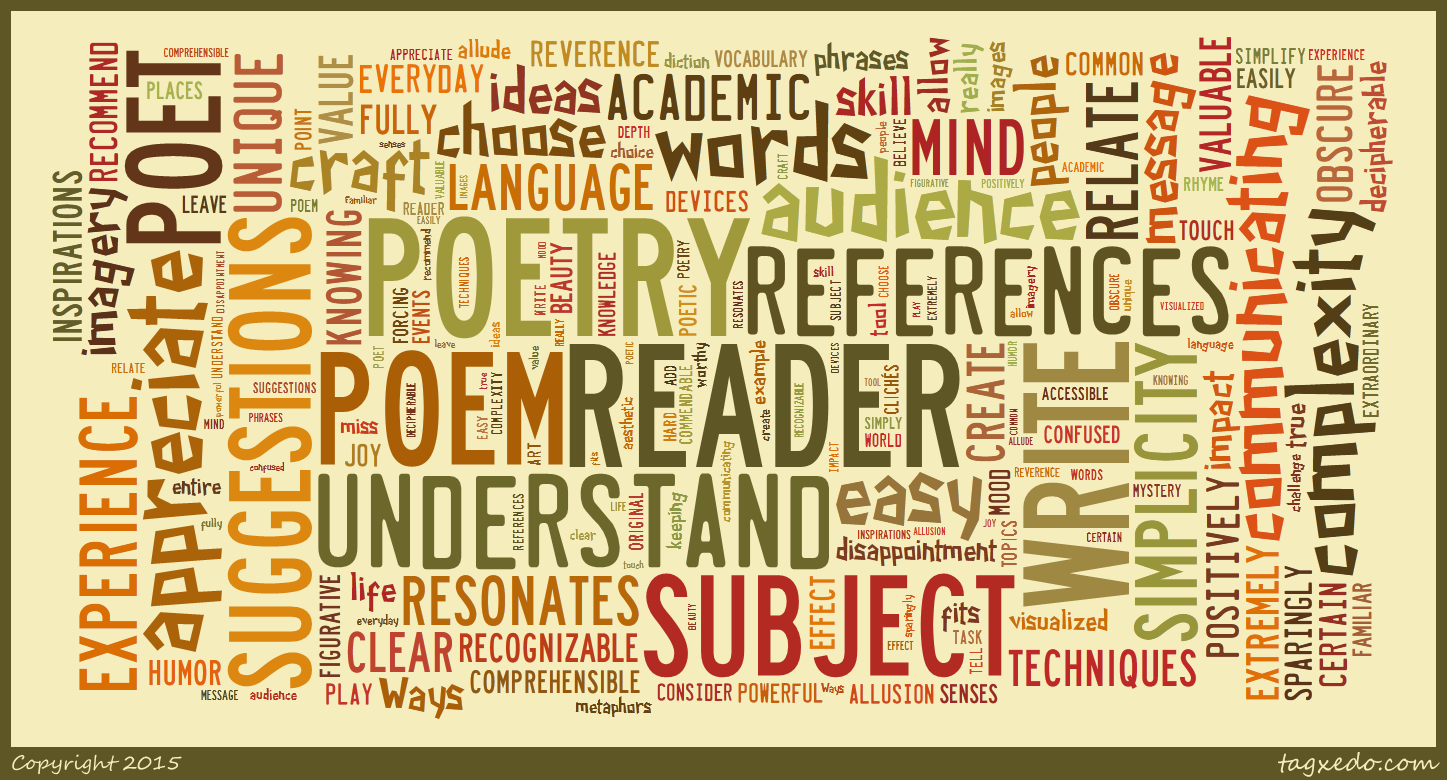Simplicity is extremely valuable when it comes to communicating through poetry. I’ve always wanted my poems to positively impact the reader rather than turn them away.
From my experience, here are five things to keep in mind as you craft your own poems that will allow readers to appreciate them fully.
1: Relatable Subject
First, choose a recognizable subject that will resonate with your audience. If the reader can relate to the subject, he or she will appreciate the poem that much more. Many poets, if not all, write from the unique inspirations of everyday life. Example
2 : Simple Language
You might be tempted to use academic words or jargon in poetry, but I recommend that you do this sparingly and only for a certain effect, such as humor or reverence. Your ideas can still be complex, and you should use unique words and phrases. Just make sure your poem on the whole is decipherable. Example
3: Comprehensible Message
What meaning do you want to convey through your poetry? Whatever it is, try to make sure that it fits our common experience. People understand themes such as beauty, death, joy and disappointment. Choosing a simple message will make sure that the reader “gets it.” Example
4: Clear Imagery
Every poet should use figurative language and poetic devices to create imagery and mood in their poetry. That’s where the true complexity and skill comes into play. Whatever techniques you use should create easily visualized images that touch one or more of the five senses. Example
5: Familiar References
Allusion is a powerful poetic tool, but it can often leave the reader confused. If you make references, try to allude to people, places, events, etc… for which most of your readers will have some knowledge. If you make an obscure reference, the readers might miss the entire point. Example
Knowing Your Audience
Most of these suggestions have to do with knowing your audience. As you consider these ideas, also keep in mind your readers. If they will understand academic vocabulary, obscure subjects and references and extraordinary topics, then by all means use them.
Warning: Simplicity Doesn’t Mean Easy
[bctt tweet=”If it’s too easy to write, then you probably didn’t try hard enough. #writers #poets”]
I want to be very clear about what I mean by keeping poetry simple.
When writing poetry using my suggestions, you may be tempted to simplify the techniques. For example, forcing rhyme in a poem at the expense of your diction (word choice). Or using clichés instead of coming up with original similes, metaphors, etc…
Be reminded that writing poetry shouldn’t be an easy task for you, the poet. It takes much skill to craft a commendable poem that resonates with a reader. If it’s too easy to write, then you probably didn’t try hard enough.
Just saying.
Because poetry is an art, we want it to be worthy of appreciation as well as accessible to the world. We want our readers to understand it, but not oversimplify it so it loses its aesthetic value.
And I’m not suggesting that you should never write poems that have mystery and depth—both add value to poetry.
I simply believe that the complexity should mostly challenge the poet rather than the reader.
Do you have any other suggestions for writing understandable poetry? Tell me below.
[bctt tweet=”Let the complexity of poetry challenge the poet rather than the reader. #poets #poetry “]
